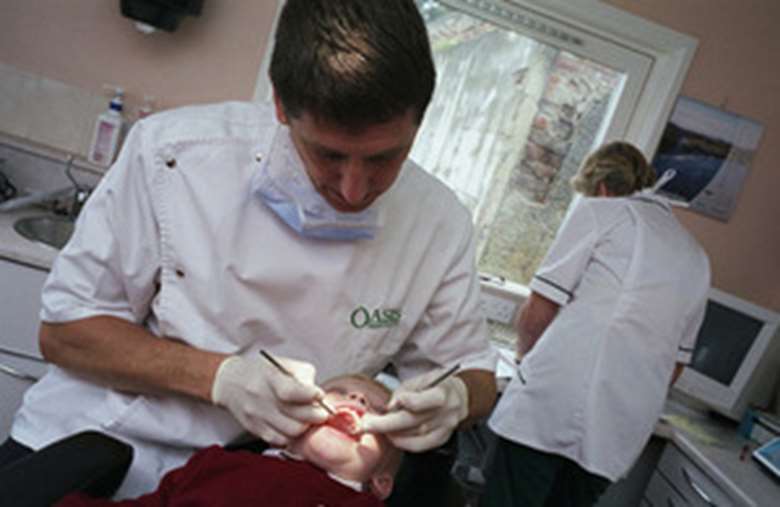Tooth decay affects one in eight three-year-olds
Tuesday, September 30, 2014
Some 12 per cent of children have tooth decay by the age of three, a new report says.

Nurseries can play a key role in encouraging parents to brush children's new teeth, a leading dental expert has said.
Public Health England's oral health survey is the first time that the dental health of three-year-olds has been measured.
Dr Sandra White, director of dental public health at the agency, says the ‘entirely preventable’ disease is affecting 12 per cent of three-year-olds who have an average of three decayed teeth each.
She said, ‘Nurseries have a key role, especially around sugar. A lot of nurseries are absolutely clued up on this, but when we look at where they get their sugar from, previous studies show 14 per cent comes from fruit juice, 12 per cent from confectionery, 12 per cent squash and 8 per cent is from biscuits.
‘Often parents don’t think about brushing teeth straightaway – people say the child has only got a few teeth so it doesn’t matter, "we haven’t quite managed that yet", or "they don’t like having their teeth brushed so we don’t force it". But as soon as a tooth comes through it can start to decay.’
The survey also showed the worst areas for tooth decay were the east Midlands, the north west, London, Yorkshire and the Humber – all showing above the UK average level of 12 per cent.
Dr White said the average figure was ‘about what she was expecting’ but she was surprised by the level of variation across the country – from a 2 per cent prevalence of caries, a rampant form of decay, in some areas, to 34 per cent in Leicester.
Caries, which affects front teeth and spreads quickly to others, is linked with children going to bed with a bottle with sugar added to it, said Dr White, who recently had to remove all of a child’s milk teeth because of this form of decay.
PHE carries out an annual survey into the oral health of five-year-olds, the most recent of which found that 27 per cent of five year olds had tooth decay.
The report said that while there was a clear link between deprivation and tooth decay at age five, there was a ‘far weaker association’ at age three.
Responsibility for meeting local oral health needs is now in the hands of local authorities. But Dr White said that, ‘Some [local authorities] don’t even have it on their radar, especially in some of the affluent areas.’
Examples of local initiatives to improve oral health included putting fluoride in the water, providing fluoride toothpaste, and offering children a fluoride varnish on their teeth.
Dr White added, ‘Beware of thinking that 'posh sugar' is not a problem – organic sugar is as bad for you, even organic yoghurt can have a lot of sugar in.’
The survey was carried out at PVI nurseries, school nurseries and playgroups across the country and looked at visible signs of tooth decay in 53,640 children.






